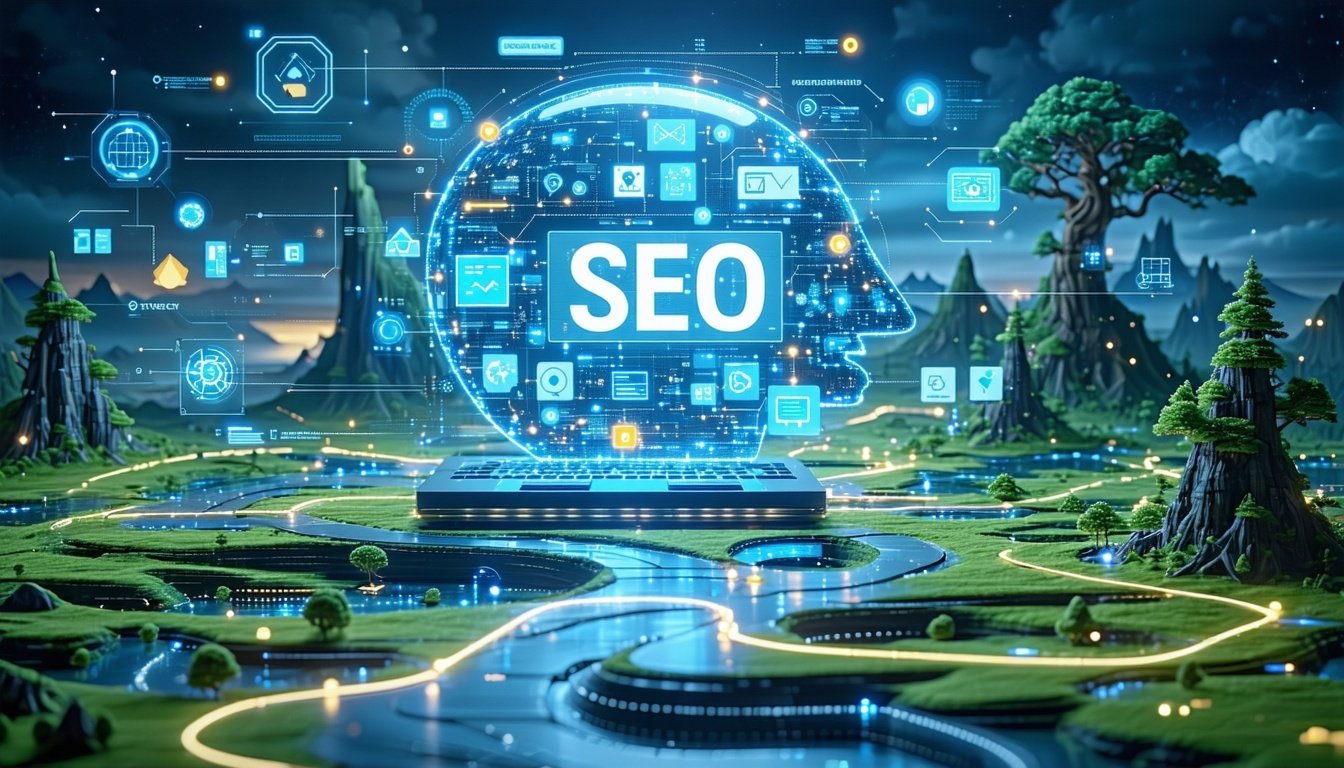AI SEO Optimisation: How Search Engines Actually Evaluate Your Content

E-E-A-T, quality signals, and why originality matters more than ever.
With the rollout of Google’s AI Mode and the rise of AI-generated answers in search results, the rules of SEO are shifting. Clicks are harder to earn, generic content is easier to ignore, and brands need to work harder to prove their value.
But how does Google really decide what deserves to rank?
It’s no longer just about keywords and high-quality backlinks – although these remain crucial to your strategy. Search engines are constantly getting smarter, and they’re focusing on something much deeper: experience, trust, quality, and originality.
And with LLMs (Large Language Models) now powering how search engines generate summaries and respond to user queries, your content has to do more than rank—it has to deserve to be cited by AI. That’s where AI SEO optimisation plays a crucial role: ensuring your content is structured, credible, and valuable enough to be referenced by AI-driven search results.
Here’s how search engines are evaluating content in 2025—and what that means for your strategy going forward.
1. E-E-A-T: Experience, Expertise, Authoritativeness, Trust
Since launching in 2022, Google’s E-E-A-T framework (Experience, Expertise, Authoritativeness, and Trust) has become even more important as AI begins to shape how search results are generated and displayed.
- Experience: Has the person writing the content personally used or tested what they’re talking about? First-hand insight is now a huge credibility signal.
- Expertise: Is the author knowledgeable in the subject? Do they demonstrate understanding beyond surface-level info?
- Authoritativeness: Does the website or brand have recognised standing in the space? Are they cited or linked to by other trusted sources?
- Trust: Is the content accurate, safe, and honest? Does the website have strong UX, clear ownership, and helpful policies?
Why this matters in AI mode:
AI-generated overviews summarise content from across the web—but they pull most often from sites that show clear signs of E-E-A-T. That’s where large language models (LLMs) come in. These models power features like Google’s AI Overviews and are trained to recognise trustworthy, well-structured content. If you want your brand to be featured or even referenced in AI-generated answers, these signals are key.
2. Quality Signals: What Google's Looking for Behind the Scenes
Search engines use hundreds of data points to assess whether content is high-quality—and many of them go beyond what’s visible to the human eye.
These include:
- Dwell time: Do users stay and engage—or bounce right back to search results?
- Page experience: Is the content easy to navigate on desktop and mobile?
- Content depth: Does the article actually answer the query? Or just skim the surface?
- Internal linking and site structure: Is your site organised in a way that helps both users and search engines understand your authority on a topic?
Why this matters to AI SEO:
As AI-powered results and LLMs become the norm, AI search engines rely heavily on these behind-the-scenes signals to decide what’s credible and useful. LLMs don’t just reward surface-level optimisation—they reward well-structured, well-linked content that gives clear signals of depth and authority. Even if users aren’t clicking through as often, quality signals still influence whether your content gets pulled into AI summaries – or left behind. Traffic from these summaries is far more engaged and qualified, creating a more effective user journey that leads to a higher conversion rate with better-prepared, ready-to-buy leads.
3. Originality: The Unsung SEO Superpower
With the rise of AI-generated content, search engines are placing more emphasis on original thought.
Google’s March 2025 core update specifically highlighted the importance of original, insightful content – especially content that provides value users can’t find anywhere else.
That means:
- First-hand commentary
- Unique data or examples
- Expert analysis or opinion
- Stories and real-world insight that can't be replicated by AI
Why this matters to AI SEO:
LLMs are trained to ignore generic, repetitive content—and they’re getting better at spotting it. If your pages offer the same take as everyone else’s, they’re unlikely to feature in AI-generated results. Bring your voice, your brand’s view, and your client experiences into the content. Originality doesn’t mean reinventing everything from scratch – but it does mean offering something no one else is.
Final Thought: Google’s Not Looking for “Perfect”—It’s Looking for Helpful
Search is evolving – and so is SEO. With AI Mode and LLM-powered search experiences changing how results are generated and displayed, brands need to go beyond surface-level optimisation.
AI SEO Optimisation means thinking differently: focusing on content that’s helpful, human, and high quality. The brands that win in this new landscape will be the ones who show real experience, offer original insight, and structure their content to be easily understood by both users and machines.
Need help turning your site into something both users and search engines love? Get your free site audit today and let's see how we can help you push to the next level.

About the Author: Dom Moriarty
AuthorDom Moriarty, Author at Angelfish Marketing
Connect on LinkedInReady to Unlock AI SEO for Your Business?
AI SEO isn’t coming — it’s already here. Capture high-intent traffic and build sustainable pipeline growth.
Get Your Free Audit

